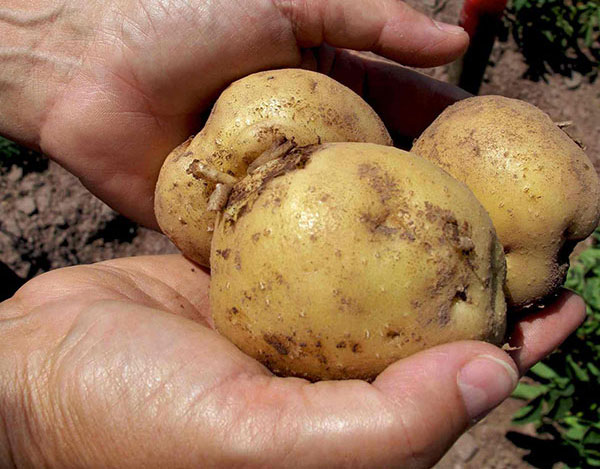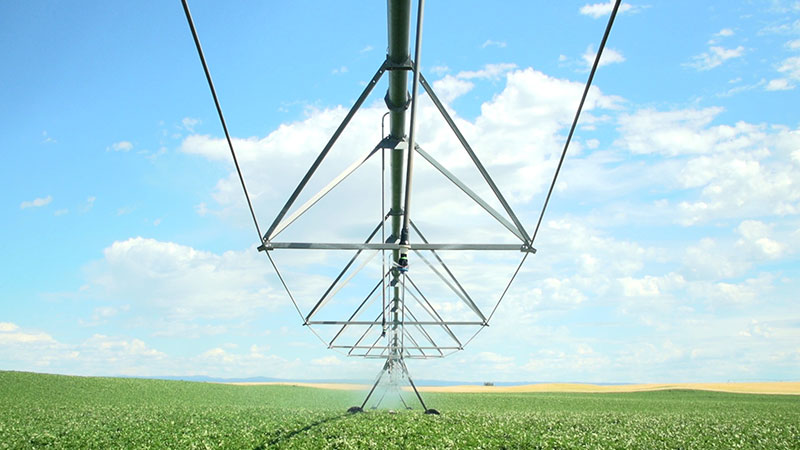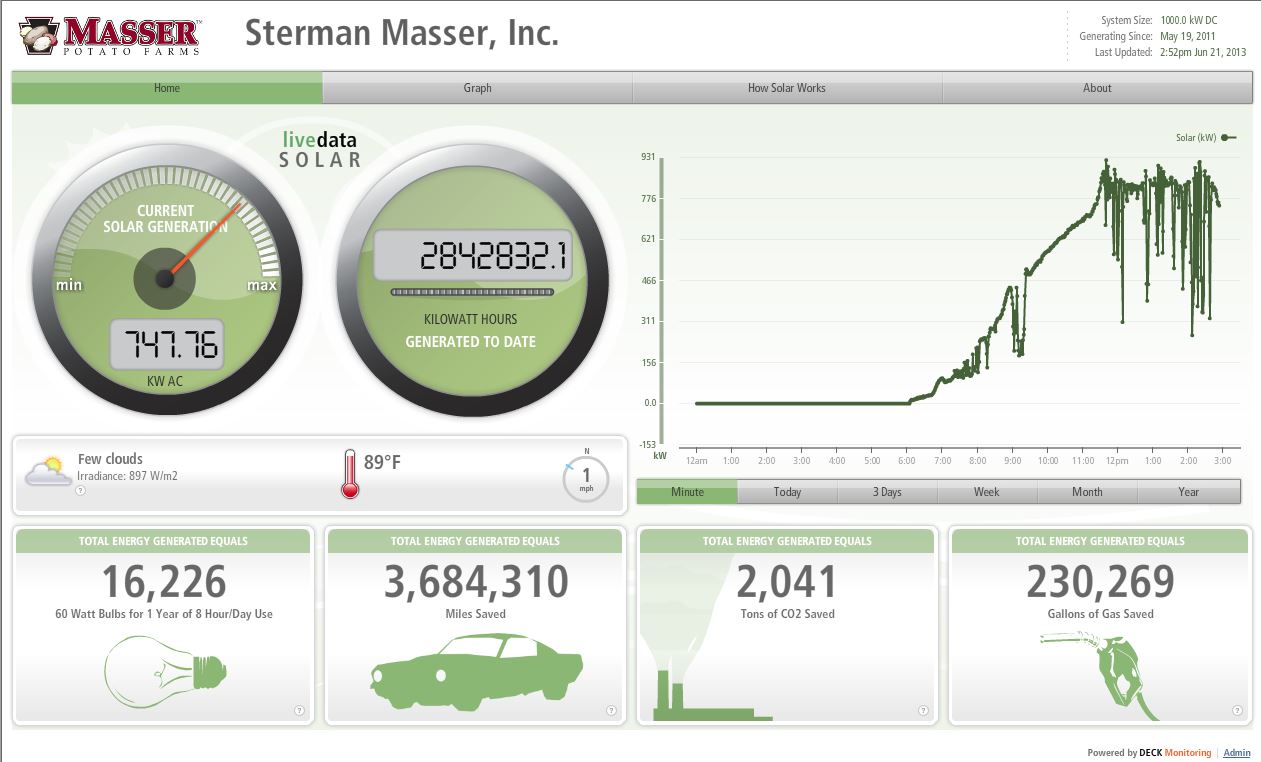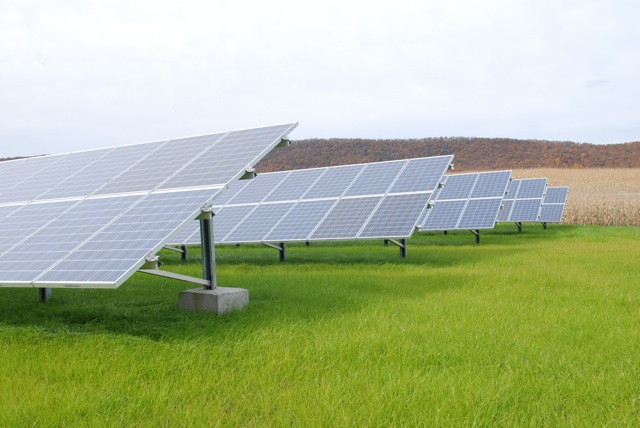Environmental Stewardship
Respecting, protecting, and enhancing the natural resources that provide the foundation for our livelihood is critical to both meeting today's needs and to insuring a vibrant legacy for future generations. Focused on continuous improvement and spanning the entire supply chain, our environmental stewardship programs not only reduce our footprint, they contribute to improved product quality and reduced cost. Examples of the types of robust and innovative practices in place at Masser Potato Farms include:
 Maintaining soil fertility and vitality through extended crop rotations, USDA soil conservation plans, and minimal use of agricultural chemicals.
Maintaining soil fertility and vitality through extended crop rotations, USDA soil conservation plans, and minimal use of agricultural chemicals.
 Comprehensive Integrated Pest Management (IPM) program, which earned Masser Potato Farms the NPC/EPA Environmental Stewardship Award in 1998.
Comprehensive Integrated Pest Management (IPM) program, which earned Masser Potato Farms the NPC/EPA Environmental Stewardship Award in 1998.
 Precision Farm Management practices, utilizing satellite GPS technology and computerized planting and chemical application equipment to minimize inputs and soil compaction, as well as the number of passes required through a field, thereby reducing fuel utilization and harmful emissions. This also helps insure optimum spacing of plants, which maximizes quality and yield per acre.
Precision Farm Management practices, utilizing satellite GPS technology and computerized planting and chemical application equipment to minimize inputs and soil compaction, as well as the number of passes required through a field, thereby reducing fuel utilization and harmful emissions. This also helps insure optimum spacing of plants, which maximizes quality and yield per acre.
 Making every drop of water count through the use of low pressure center pivots, drip irrigation, variable frequency pumps to match application to demand requirements, and reclamation, restoration and reuse.
Making every drop of water count through the use of low pressure center pivots, drip irrigation, variable frequency pumps to match application to demand requirements, and reclamation, restoration and reuse.
 Comprehensive waste management programs built on the principles of "reduce-reuse-recycle," including conversion of broken pallets and scrap wood into mulch, and the collection and return of metal wickets, poly bags, and cardboard.
Comprehensive waste management programs built on the principles of "reduce-reuse-recycle," including conversion of broken pallets and scrap wood into mulch, and the collection and return of metal wickets, poly bags, and cardboard.
 Innovative renewable energy programs, including an 8-acre "solar farm" that will produce over 1,100 megawatts of electricity per year and provide about 40% of plant requirements for Masser Potato Farms facilities and operations.
Innovative renewable energy programs, including an 8-acre "solar farm" that will produce over 1,100 megawatts of electricity per year and provide about 40% of plant requirements for Masser Potato Farms facilities and operations.
 The truck fleet of Masser Logistic Services is built to reduce wind drag, thereby increasing fuel efficiency by 1 mile/gallon; trucks are also equipped with auxiliary power units for additional fuel efficiency and extended engine life.
The truck fleet of Masser Logistic Services is built to reduce wind drag, thereby increasing fuel efficiency by 1 mile/gallon; trucks are also equipped with auxiliary power units for additional fuel efficiency and extended engine life.
Masser Potato Farms Powered by a "Solar Farm"
In May 2011, Sterman Masser Potato Farms completed the installation of one of the largest solar energy systems in Pennsylvania. The 1-megawatt system in Sacramento, Hubley Township, is producing energy-efficient power to run the crop's irrigation system, equipment storage units, and fans in the grain and packing facilities.
The solar panels cover an estimated four acres and are expected to produce about 1,107,000 kilowatt hours of energy each year, or about 92,250 kilowatts each month. For perspective, the average American home uses about 750 to 1,000 kilowatt hours a month.
While most people think that the "sunny states" such as Florida and California are better suited for solar power systems, experts point out that the climate in northern states like Pennsylvania is more applicable because excessive heat can actually decrease the efficiency of solar panels.
|
|


